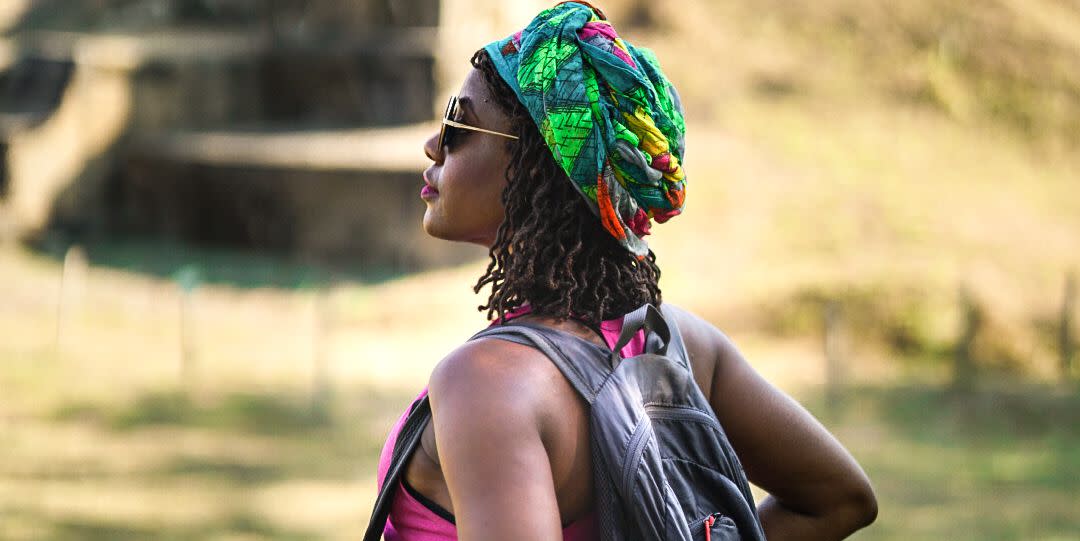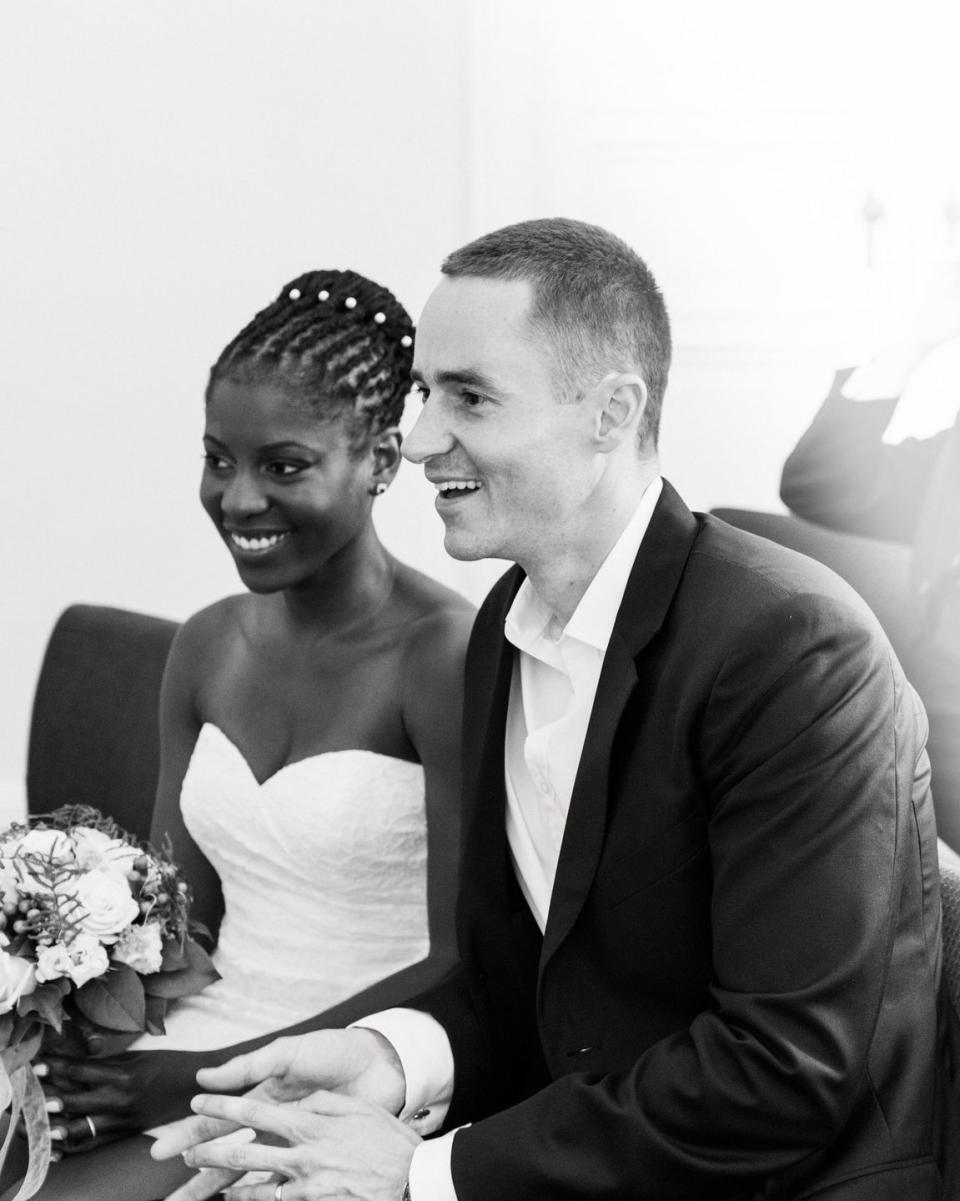Yes, I Want to Talk About My Miscarriage. Here's Why

It was a gray afternoon in February when I found out the baby that had been growing inside me for twelve weeks had died. I got my first clue midway through my ultrasound, when my nurse—chatty at the beginning of the appointment—became increasingly silent as she ran the doppler across my stomach. Too afraid to ask if anything was wrong, I lay still in the half-dark as she made an abrupt exit to find the doctor.
When he appeared fifteen minutes later wringing his hands as he looked me in the eyes, I knew what he was about to say:
Still, my brain struggled to process the news that there would be no baby after all. It just didn’t make any sense: there was no blood, I still had debilitating morning sickness (a supposed hallmark of a “strong” pregnancy), and, having just crossed the three-month goalpost, I’d already started telling family and friends that I was expecting.
How could this be? The doctor explained that, despite having a gestational age of 12 weeks, my baby had stopped developing around nine and a half. I’d experienced what’s known as a “missed” miscarriage; my body hadn’t registered the fetal loss, so it still thought I was pregnant. Despite having all the typical symptoms of someone who was expecting, an embryonic death had occurred—and I was none the wiser. As the doctor passed me tissues, my sobs filled the examination room.
I was given two options: I could either wait for my body to finally recognize that the pregnancy was no longer viable and pass the fetus on its own (which could take up to two weeks), or I could undergo a surgical procedure known as a dilation and curettage (D&C) to remove it from my uterus. Because I had plans to travel internationally just two days later, my doctor advised against miscarrying naturally in a foreign country—and promptly scheduled an emergency D&C at the hospital for that very afternoon.
48 hours later—on Valentine’s Day—my husband and I boarded a plane for the trip to Central America we’d planned months earlier. It’s the vacation I’ll forever remember as the babymoon that never was.
I didn’t know it then, but I had joined the silent sisterhood of women who have experienced pregnancy loss. According to the American College of Obstetricians and Gynecologists (ACOG), anywhere from 10 to 25 percent of all clinically recognized pregnancies will end in miscarriage, with most healthy women having a 15 to 20 percent chance of miscarrying on average. What’s more, as maternal age increases, so does the risk of this type of fetal death. The ACOG cites that women between the ages of 35 to 45 have a 20 to 35 percent chance of miscarriage, while women over the age of 45 can have up to a 50 percent chance.
Anywhere from 10 to 25 percent of all clinically recognized pregnancies will end in miscarriage.
Youyin Choy, M.D., an Obstetrics and Gynecology Specialist at New York’s Mount Sinai Hospital, says that there are a few other factors that can contribute to this form of loss.
“Most miscarriages are due to a chromosomal anomaly of the embryo, meaning something’s gone wrong during development,” she says, adding that chromosomal abnormalities are present in up to 70 percent of pregnancy losses that happen before 20 weeks.
However, Choy says that another reason for miscarriages can be an anomaly in or malformation of the uterus, like the presence of uterine fibroids or polyps. And apparently, certain races can be more susceptible to pregnancy loss, too, with Choy noting that “studies have consistently reported an increased risk of early pregnancy loss in women of color compared with white women.”
Given all of that information, it’s possible the pregnancy cards were stacked against me long before I’d even had the chance to play the game. As a Black woman of Afro-Caribbean descent, I fall squarely into the women of color group. Add to that the fact that I have five large fibroids along my uterine wall and was 36 years old at the time of my failed pregnancy, and the odds were even less favorable.
Still, despite knowing that the miscarriage occurred through no fault of my own, for months I was plagued by the idea that somehow, I had caused it. Yes, factors outside of my control had contributed to the miscarriage But was it also possible I had lost this child because I wasn’t excited about motherhood in the first place?
For most of my life, I wasn’t sure whether or not I ever wanted to become a mother. It’s not that I didn’t like kids—quite the contrary. Motherhood was just never something I spent much time picturing for myself, especially because of my nomadic lifestyle.

By my mid-thirties, I had lived in six countries and had travelled to over 100, working in overseas education for nearly a decade before building my dream career in freelance travel journalism. While all the globetrotting was glitzy and exciting, flitting around for assignments in destinations like Senegal and Singapore lacked stability. So despite being married to the love of my life, I couldn’t picture fitting a child into my jet-setting. Or perhaps I just didn’t want to.
Of course, being in a long-term relationship and in my early thirties meant that the questions about starting a family from friends, relatives, and even strangers were frequent. I’d field prying inquiries with a nervous laugh, shrug, or tongue-in-cheek response about how the exorbitant cost of raising a child would drastically cut into my travel budget. In truth, though, having a baby just wasn’t a priority.
That is...until I turned 35. With the hands ticking loudly on my biological clock, my husband and I realized it was time to get serious about whether or not we wanted to jump on the baby train. While he couldn’t envision a future without children, I was still on the fence. I enjoyed our unencumbered, footloose and fancy-free status as what I called DINKs—a double income, no kids couple.
After thinking about it for another year, however, the fear of missing out—or one day regretting my decision—led me to jump on the train. And so my husband and I started trying “for real” shortly after my 36th birthday in August, 2018. By December, two days before Christmas, I called my husband into the bathroom and triumphantly waved the positive pregnancy test under his nose.
My initial excitement quickly made an about-face when intense morning (read: all day) sickness took hold of my body seven weeks into the pregnancy. While I was lucky that I never once vomited, the nausea was debilitating—to the point where most days, I couldn’t get out of bed. My joints ached, and my once-clear complexion became marred with pregnancy melasma. Known as the “mask of pregnancy” due to hormonal changes brought on by fetal development, it resulted in dark, flaky patches on my forehead, cheeks, and chin. Distraught by my physical and physiological state, I cried every day for a month.

Depressed and mostly unable to leave the house, I all but stopped talking to friends, the vast majority of whom didn’t even know I was pregnant to begin with. My normally active social media feeds went mute, and I went days without answering emails, the kiss of death for a freelancer whose income depends on keeping in close touch with clients.
Not only was I overcome with sickness, but also, resentment. I hated what this baby had done to my body, psyche, and overall sense of self. I scowled in bed as waves of nausea rolled over me, and my husband, ever supportive, bore the brunt of my sadness, disgust, and anger. In one particularly tense moment, I told him I wasn’t sure I wanted to be pregnant anymore—a scene that has replayed in my mind many times since. Had I spoken my miscarriage into existence?
Dr. Choy asserts that this kind of second-guessing is common amongst women who have gone through a miscarriage—and is exactly what often prevents us from speaking openly about our losses with others.
“Women feel ‘guilty’ and blame themselves for the loss of the child, citing reasons such as exercising, trauma, and over-working,” she shares. But Dr. Choy emphasizes that miscarriages rarely occur if the pregnancy or embryo is free of abnormalities.
While guilt plays a major role as to why we don’t talk about miscarriages candidly, I’d add that another problem is the way we shroud the early stages of pregnancy in secrecy. In Western cultures, it’s customary for a woman to refrain from announcing her pregnancy until she’s at least two or three months along—“just in case” the pregnancy isn’t viable. What’s more is that this period of secrecy happens while we’re suffering from symptoms like morning sickness and adjusting to the idea of becoming a mother.
I have to wonder: How can we be expected to feel comfortable discussing our miscarriages when we’re discouraged from telling people we’d even been pregnant in the first place?
Dinah Eke, a clinical researcher and lifestyle blogger, agrees. Her miscarriage started while at a work conference—but because no one there knew she was pregnant, she had to maintain her composure and struggle in isolation.
“While I sat through presentations and tried to smile with co-workers, I bled and cramped for two days,” she remembers. “It was not until I shared my loss on social media that I realized how many other women, including my friends, had secretly gone through the same thing.”
It’s anecdotes like these that have prompted me to more openly discuss my own miscarriage. As women, we are racked by guilt and shame about our infertility—precisely because we don’t realize just how commonly it occurs. But keeping our losses secret benefits no one, and sharing what happened to me has been cathartic. Since speaking about my miscarriage on social media, for example, I’ve received a slew of messages from women, both friends and strangers, who have either experienced a form of loss themselves or are intimately acquainted with someone else who has. All of the support and speaking about my miscarriage openly has felt like a giant sight of relief.
A post shared by Oneika Raymond (@oneikatraveller) on Aug 1, 2019 at 2:27pm PDT
I’m lucky that my story has a happy ending: 10 months after my miscarriage, I’m now expecting again. At over 36 weeks pregnant, my husband and I consider ourselves blessed to have conceived a second time. But while this pregnancy has progressed with relatively little incident, I can’t help but think about the difficult mental and emotional journey I’ve endured to get to this point. There’s been intense anxiety, many sleepless nights, and the endless fear that this second pregnancy might end like the first. I also think of my angel baby often—and realize that the grief of that loss will never entirely go away.
If there’s anything I’ve learned from this experience, it’s that while a miscarriage may be a deeply personal and painful experience, it doesn’t have to be an isolating one. And while my miscarriage might have changed me forever, I know now that there’s no need to be ashamed or suffer alone—and that’s because I’ve been able to pull back the shroud of secrecy to talk about my experiences with other women who can relate. In many ways, pregnancy creates a special sisterhood with other women—and there’s no reason that sisterhood has to be silent.
For more stories like this, sign up for our newsletter.

